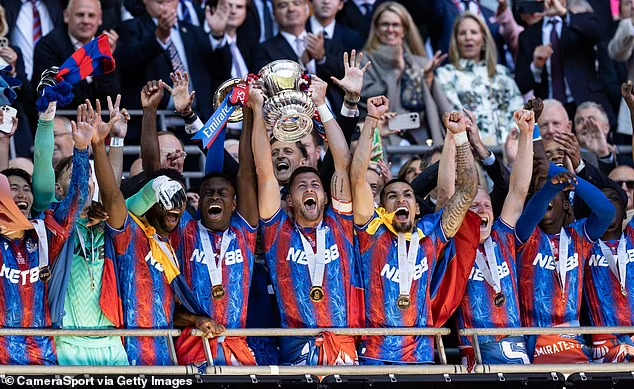Crystal Palace’s FA Cup Glory Marks a Bold New Era in English Football
Crystal Palace lifted their first major trophy in style on Saturday afternoon, defeating reigning champions Manchester City in the FA Cup final at Wembley and sending a powerful message across English football — the gap between the giants and the underdogs may finally be narrowing.
Palace’s historic 2-1 triumph wasn’t just about silverware. It was a cultural moment for the club, a victory that symbolized possibility for every mid-table Premier League side who has long dreamed of competing for the biggest honors.
Eze, Henderson and Palace’s Fairytale Afternoon
Eberechi Eze, the man of the hour, scored the winning goal that will be replayed for years to come. He left the pitch with the match ball in hand and a smile as wide as the Wembley arch. For a club whose fans have tasted heartbreak on similar stages — including FA Cup final defeats in 1990 and 2016 — this was redemption and then some.
At the other end of the pitch, Dean Henderson was immense. The 28-year-old goalkeeper made a string of sensational saves and denied City from the spot to preserve Palace’s lead. He was perhaps fortunate to stay on the pitch following a controversial moment early on, but what followed was nothing short of heroic.
Henderson later revealed that his backup, Remi Matthews, had predicted the performance of his life just hours before kick-off. “Remi said I was going to have a worldie and save a penalty. I just said, ‘Yeah, I will.’ And it came true.”
A Shift in English Football’s Balance
Palace’s win was not just an upset; it felt like a shift in the tectonic plates of English football. For the first time in years, the domestic game is seeing genuine disruption. Newcastle United already lifted the Carabao Cup, and Nottingham Forest are knocking on the door of the UEFA Champions League.
Steve Parish, the Palace chairman, said it best in the aftermath: “This victory stands not just as a blow for South London and Palace, but also as a siren call for clubs of similar standing. Glory is not just for the really big clubs. It’s there for everybody if you have the courage and the gumption to reach for it.”
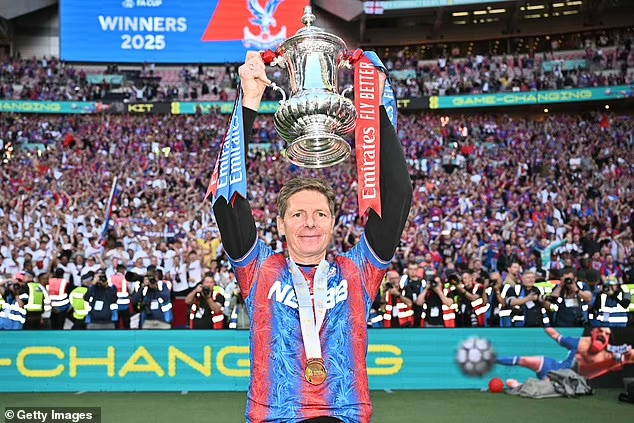
Palace manager Oliver Glasner, who arrived with little fanfare but massive tactical acumen, had long believed his team could upset City. Despite losing 5-2 to Pep Guardiola’s side in the league recently, Glasner drew confidence from that match, noting that City wouldn’t get the same chances again. And he was right.
A City Side in Transition
Manchester City, on the other hand, were a shadow of their former dominant selves. For a club accustomed to winning everything under Pep Guardiola, finishing the season without a single trophy is a stunning outcome.
Guardiola’s side now faces a critical rebuild. With questions swirling about squad depth, key player form, and tactical fatigue, it’s the first season since 2016–17 that City will end the campaign empty-handed.
Kevin De Bruyne and Bernardo Silva, among others, looked shell-shocked at full-time. The team bus that departed Wembley bore images of past triumphs, but on this day, it was Palace whose names would be etched into history.
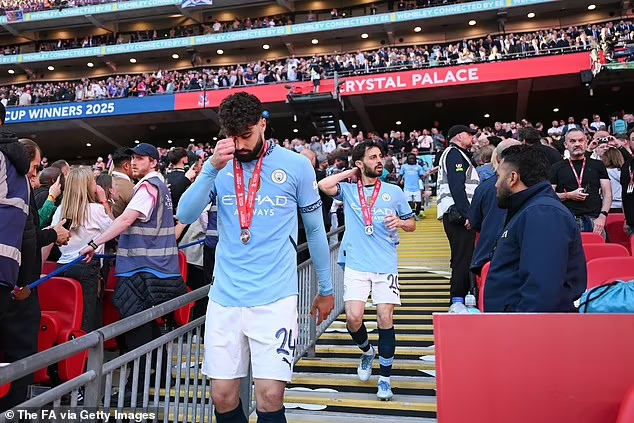
The Rise of the Rest: Palace’s FA Cup Win Reflects a Changing Premier League Landscape
There’s a growing sense that English football is undergoing a quiet revolution. Crystal Palace’s FA Cup triumph over Manchester City wasn’t just a one-off fairy tale—it was the latest chapter in what feels like a wider levelling of the Premier League playing field.
Newcastle United already lifted the Carabao Cup earlier in the year, ending a 70-year trophy drought. Nottingham Forest, under Nuno Espírito Santo, are chasing Champions League qualification. And week after week, clubs like Bournemouth, Brentford, Brighton, and now Palace, face the so-called Big Six without fear or reverence. The days of mid-table sides rolling over at the sight of blue, red, or white shirts seem to be fading fast.
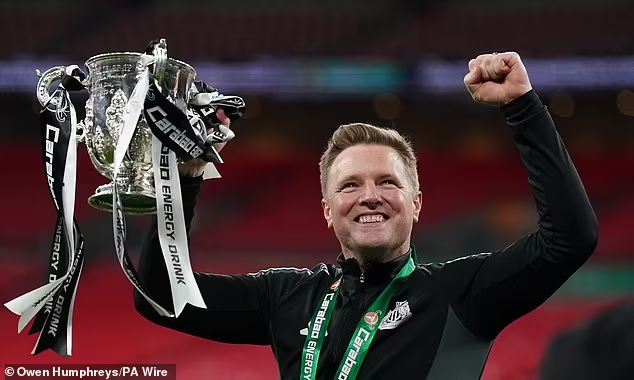
On Saturday at Wembley, all of this came to life in full colour. Yes, Palace were the underdogs. But anyone who’s watched them in recent months wouldn’t have been shocked by the result. The belief was real, and the performance backed it up.
It wasn’t a shock on the scale of Wimbledon beating Liverpool in 1988 or Wigan’s epic takedown of City in 2013. Those felt like lightning strikes—dramatic but fleeting. Palace’s win felt more like the logical progression of a team that’s been building something.
Now, challenges await. The spotlight will shine bright on manager Oliver Glasner, whose future is already the subject of speculation. Europa League football next season will stretch a squad unaccustomed to juggling domestic and continental duties.
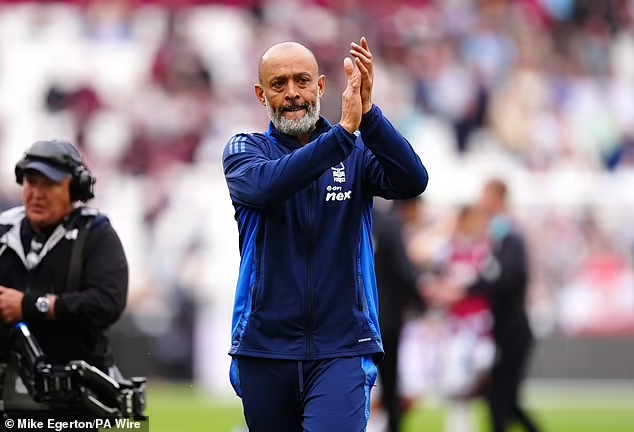
But that’s the price of ambition—and Palace are paying it gladly. They’re no longer just one of London’s ‘other’ clubs. They are FA Cup champions. They are contenders. And no matter how some try to downplay it, this moment is as big as it feels.
This is Crystal Palace’s new reality—and English football may never be quite the same again.
READ NEXT:


